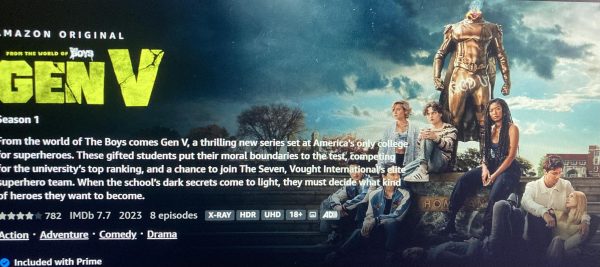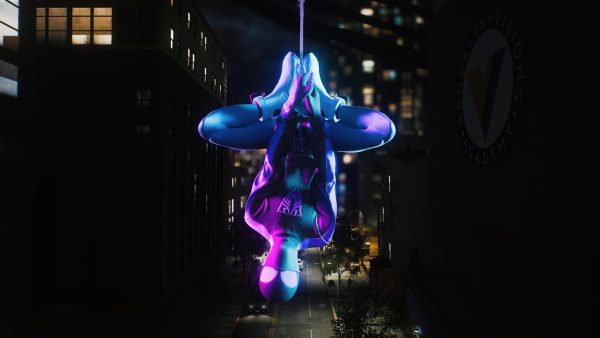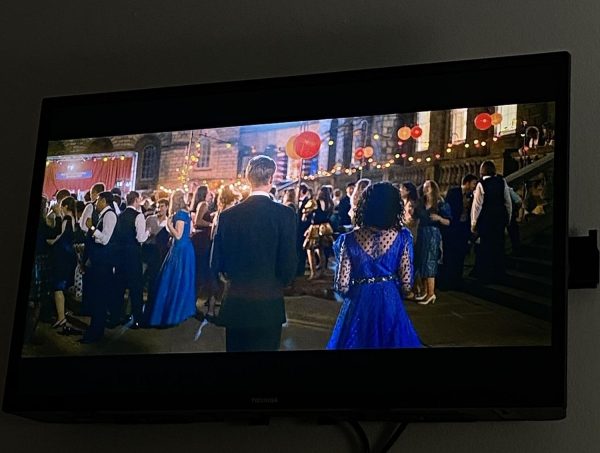Unpopular Opinion: I Actually Liked Black Widow (For the Right Reasons)
Natasha Romanoff (left) and Yelena Belova (right).
August 26, 2021
Marvel’s highly anticipated stand-alone superhero movie Black Widow finally came out on July 9, 2021, over a year after its original release date of May 2020, and the reviews were more mixed than anticipated.
Warning, spoilers for Black Widow, and some past MCU movies ensue.
Black Widow follows superspy and Avenger Natasha Romanoff, also known as Black Widow, and her path to finding herself, reconnecting with her past family, and clearing her ledger of red.
The movie was set between the events of Marvel Studios Captain America: Civil War and Avengers: Infinity War.
At the start of the movie, we see Romanoff escaping Secretary Ross, the person hunting her down after she betrayed Iron Man in the events of Civil War by siding with Captain America. After that, we see her journey going back to her home country of Russia and reconnecting with her family, all the while coming to terms with her past in the Red Room and righting her wrongs.
I didn’t find this movie great solely because of Yelena Belova, even though she was a great, charismatic character in this movie who delivered a humorous, yet concerning line about forced hysterectomies.
It was, in my opinion, a great movie that showed both Natasha’s past and just how dark Marvel can actually be with their movies, but a lot of people didn’t see it that way.
The biggest critique that went around about the movie was the “villain,” Taskmaster, who has the ability to replicate the moves of his opponent. Many complained about how poorly Taskmaster was portrayed.
In the comics, Taskmaster was a great villain that many people would have wanted to see in the MCU, and many were excited to see him come to life in Black Widow. But, in the movie, Taskmaster was not in fact Tony Masters as it was in the comics. It was Antonia, the daughter of Red Room overseer, Dreykov.
For Natasha to successfully defect from the Soviet Union and join S.H.I.E.L.D., she had to kill Dreykov. But, in the process of her killing him, or at least thinking she did, Antonia ended up being collateral damage.
In my opinion, Antonia being Taskmaster was a good way for Natasha to see her demons and come to terms with the fact that leaving Antonia to die was one of the biggest sins she committed. This was also hinted at back in 2012’s Avengers when Natasha Romanoff successfully tricked Loki into revealing his plans to her.
Before she was able to pull that off, Natasha had told Loki she was with the Avengers and S.H.I.E.L.D. to try and clear her ledger of red, and Loki asked the question, “Can you? Clear that much red?” He then proceeded to state, “Dreykov’s daughter.” At the time, people inferred that he was referring to Romanoff as Dreykov’s daughter since we knew very little about Natasha’s past. We now know that that’s not the case.
Taskmaster, as well as Antonia, was shown as a victim. Someone whose body was simply used as a weapon to satisfy someone else’s problems.
In reality, the true villain of Black Widow was Dreykov himself. Dreykov was the overseer of the Red Room, one of the most brutal institutions in the Marvel world. It was a tool used by the KGB and the Soviet Union to kidnap and train girls into becoming superspies. Every woman in the Red Room was called a “Widow.”
As a woman, Dreykov to me is one of the scariest, if not the scariest, villains that Marvel has ever created. Dreykov is a representation of real people that exist in the real world. Men that kidnap, abuse, and traffic women, whether it be for human labor or sexual acts. Men that treat women as objects or a tool. Dreykov was perfectly fine with using his own daughter as a weapon, completely disregarding her safety and her life.
Whether or not people would consider him “weak” compared to the other MCU villains, he is a person representing society, just like this movie was.
This movie was a good representation of how women get abused and used to do dirty work for those around them.
And even though some parts of this movie could have been handled better, I ultimately do believe that this movie was a good send-off to the late Natasha Romanoff.








![[Left] Dark Samus (Amiibo) and [Right] Boba Fett (Disney Infinity)](https://shsthetribe.com/wp-content/uploads/2024/03/IMG_9050-600x450.png)



